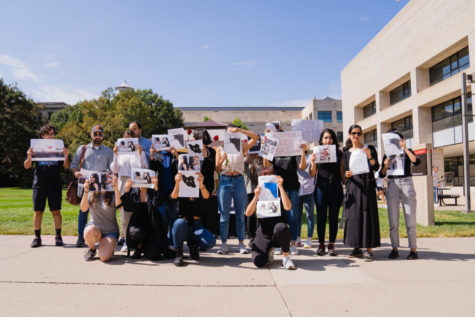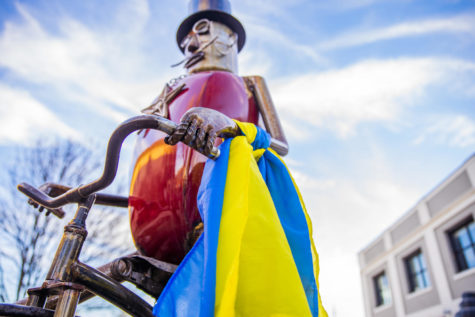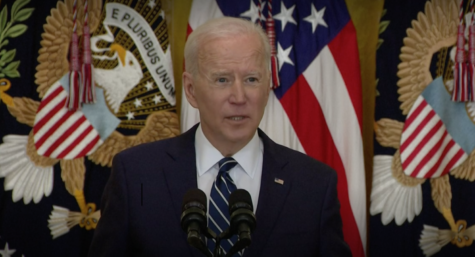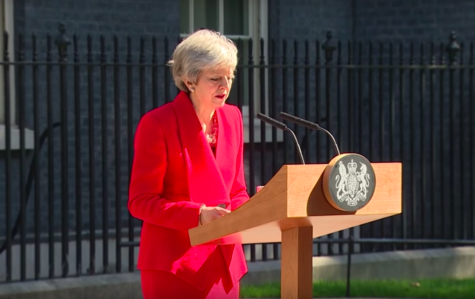UK trial reveals new al Qaeda strategy to hit West
February 22, 2013
The trial of three Birmingham men convicted Thursday of plotting to launch a “catastrophic” suicide bombing attack in the United Kingdom revealed that al Qaeda has developed a new strategy to target the West.
The new strategy involves a teacher-training approach in which a select few Western operatives are taught bombmaking and other aspects of terrorist tradecraft in the tribal areas of Pakistan and are then instructed to return back to the West to “spread the knowledge” to a larger body of Islamist extremists keen on launching attacks.
The new approach is a response to the growing toll of drone strikes which have made travel to the tribal areas increasingly perilous for Western recruits and significantly diminished al Qaeda’s ability to orchestrate terrorist plots from the region.
The trial revealed that terrorist groups in Pakistan are actively dissuading Western militants from making the trip.
Two of those convicted Thursday — Irfan Naseer and Irfan Khalid — received 40 days of terrorist training in the tribal areas of Pakistan in the spring of 2011, mostly inside houses in the valleys of Waziristan.
In conversations bugged by British police, the plotters described being handled by al Qaeda operatives and having attended a training camp run by Harakat al Mujahideen, a Pakistani terrorist group closely affiliated with al Qaeda.
The recordings revealed that like other Western militants before them, they were provided detailed instruction in the tricky and potentially hazardous methods to make bombs out of substances readily available in the West, and practiced detonating them. Their instructors included Arabs and Pakistanis.
They also were taught how to put poisons in face creams.
And their teachers emphasized they should put nails inside their bombs, to act as razor-sharp shrapnel.
Naseer, a pharmacy major and the plot’s alleged ringleader, was heard recalling how one of their trainers had said the July 7, 2005, London bombers had missed an opportunity to kill more people by failing to put nails in their devices.
Naseer commented on how they were given so much information that they had accumulated 30-40 pages of notes.
They were told the smaller the cell they recruited the better, illustrating al Qaeda’s move away from spectacular attacks on the 9/11 scale toward smaller strikes that have a better chance of getting through.
In the recordings played in court, Naseer said his cell should keep the numbers launching the attack in the United Kingdom to around half a dozen. The recordings, however, indicated the cell’s plans grew increasingly ambitious with talk of launching an attack bigger than the 2005 London bombings.
The need for less ambitious attacks was previously stressed by two senior American al Qaeda operatives: al-Qaeda in the Arabian Peninsula cleric Anwar al-Awlaki and Adnan Shukrijumah, an operative believed to be still at large in Pakistan.
An internal al Qaeda strategy document, authored in around 2009, and recovered in 2011 from a Berlin operative, had called for a greater emphasis on low-cost low-tech attacks by Western militants, whom it said should be quickly trained in the tribal areas of Pakistan.
Teaching Westerners to teach back home
In Pakistan, Naseer and Khalid’s al Qaeda handlers had a new “command” for them: go back and teach others.
Naseer revealed this to an associate, keen on traveling to Pakistan, who he and Khalid wanted to stay in the United Kingdom to participate in the plot.
“AQ’s main aim is… the knowledge that they give us, [they] want more and more people [to] have [the knowledge] in Europe. So they can start whacking [attacking] there, yeah, do you understand?,” Naseer is heard telling the associate in the recordings.
Analysts say that if al Qaeda manages to put into practice their new teacher training model, it will raise alarm bells with Western security services because it would reduce the need for Western militants to travel overseas for terrorist training.
“This seems to be a product of al Qaeda’s desperation to try to get an attack through, but it’s a potentially scary development,” Raffaello Pantucci, a senior fellow at the Royal United Services Institute, who closely followed the trial, told CNN.
While Islamists militants have access to many bombmaking recipes online, analysts say they often contain potentially fatal errors and have been seen by militants as a poor substitute to hands-on training by an instructor schooled in the art of bombmaking.
Security services fear the presence of such instructors on Western soil could be a game changer.
Message from al Qaeda: Stay Put
The Birmingham case revealed that al Qaeda had begun actively dissuading recruits from going to Pakistan.
“They told me don’t send anyone [more to us],” plot ringleader Naseer said in one of the recordings.
In a June 2011 video “You are Only Responsible for Yourself,” released around the same time the Birmingham duo trained in Pakistan, al Qaeda’s leadership in Pakistan had urged Western militants to stay home to launch attacks.
Khalid, in one conversation recorded by British police, pointed out that Inspire magazine — the online English publication of al Qaeda in the Arabian Peninsula in Yemen — had the same advice: “we don’t want people to be traveling cos it’s getting risky.” In 2011 Samir Khan, an American member of the group, urged followers to launch attacks in the West rather than travellng to Yemen.
Naseer and Khalid painted a dim picture of the tribal areas of Pakistan in their attempt to stop their associate from traveling there.
“[Waziristan] hasn’t got no more camps now… the brothers used to be in the mountains [but] the drones just get them straight away, they just bomb the camps, so … they taught us inside houses,” Naseer is heard telling the associate in the recordings played in court.
He described how he had had to cower for several hours in 100-degree heat when a drone circled above. “That day was bad … it’s a nasty situation to be in, man,” chipped in Khalid.
Khalid described how the drones restricted movement for fighters in the region: “They were restricted to one place most of the time: One place to eat, sleep, go to toilet and do everything.”
Terror training on UK soil
Naseer and Khalid implemented the new al Qaeda strategy when they returned to the United Kingdom. Just days before their arrest on September 18, 2011, Naseer provided Ashik Ali, the third Birmingham man convicted Thursday, with hands-on instruction in how to make explosives.
According to expert witnesses consulted in the trial, Naseer had acquired the correct knowledge to teach recruits how to make viable bombs. The recordings suggested their planned attacks were still months away.
In one of the bugged conversations, Naseer is heard suggesting that the restrictions on training in Pakistan meant it was just as effective training recruits in the West.
“[In the tribal areas] you get bit of an experience in fighting — but you know the rest of the stuff that could be taught — they taught us in a room.”
At one point, Naseer warned Ali that if he hit or rubbed the explosives in a certain way it could explode and potentially kill him; just one of the many lessons he passed on from his training in Waziristan.
In the days before their arrest, Naseer experimented and tinkered with potential bombmaking chemicals in a Birmingham home, including the chemicals inside sports injury cold packs. The recordings revealed that his instructors in Pakistan had taught him that ammonium nitrate — a potentially high powered explosive — could be extracted from such packs, demonstrating al Qaeda’s continued inventiveness.
Pantucci told CNN the Birmingham case illustrated that despite intensified drone strikes in Pakistan, Western militants were still finding ways to connect with al Qaeda in the region, providing the terrorist groups opportunities to attack the West.
He said al Qaeda’s new emphasis on training Westerners to in turn provide terrorist instruction in the West reflected the group’s looser control over plots than just a few years ago.
Unlike the 7/7 bombers, and other recent terrorist conspiracies like a plot to attack Manchester in 2009, the Birmingham plotters do not appear to have been in touch with their handlers in Pakistan after returning to the United Kingdom.
Pantucci says the pressures on al Qaeda have resulted in a shift toward a new model of “fire and forget.”
The March 2012 Toulouse terrorist shootings provided further evidence of looser control by al Qaeda of terrorist plots in the West. The perpetrator of the attack — Mohammed Merah — was encouraged by the group to return to France to launch an attack during a short stay in the tribal areas of Pakistan in September 2011 but planned every aspect of the operation himself, including which targets to strike.
















